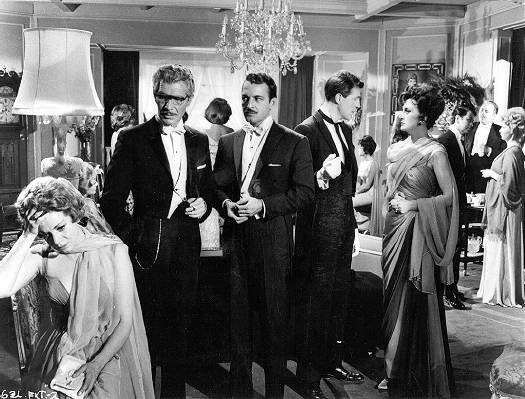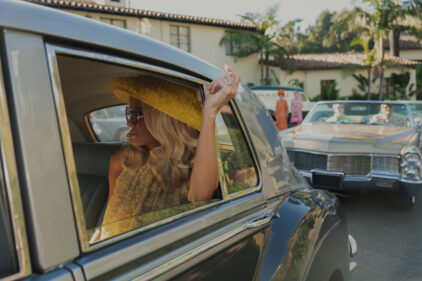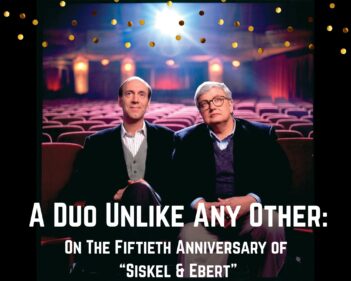[EDITOR’S NOTE: This review contains spoilers, particularly in the last two paragraphs.]
It is strange to begin with that the cook and the servants would suddenly put on their coats and escape from the house, just as the dinner guests arrive. The hostess furious; she had planned an after-dinner entertainment involving a bear and two sheep. Now it will have to be canceled.
Still, the dinner is a success. The guests whisper filthy slanders to the persons next to them about the persons across from them just like at dinner parties everywhere.
It is only after dinner, when the guests retire to the drawing room, that events seem a little odd. The doctor confides that one of the women present is incurably ill: “She’ll be bald within a week, that’s my guess.” A lady opens her purse, and it is filled with chicken feathers and two desiccated rooster claws. You’ve got to admit that’s unique. One of the guests plays the piano, drinks are served and, when the time comes for everyone to go home, nobody can. Strange. They want to go home. But they simply cannot bring themselves to leave. They settle down for the night, sleeping on the furniture and the floor.
By small steps such as these, the great Spanish director Luis Bunuel traps us in the surrealistic universe of “The Exterminating Angel,” his most bitter, most brilliant work since “Viridiana.” Bunuel, an old man now, was one of the original Surrealists’ years ago in Paris and made a famous film (“Un Chien Andalou“) with Salvador Dali in which an eyeball was cut open. He has long since left that sort of sensationalism behind but his films still reflect a darkly pessimistic view of human nature.
It now appears that “The Exterminating Angel” is one of his final statements; after it he made “Diary of a Chambermaid” with Jeanne Moreau, and then “Belle de Jour,” which won the grand award at Venice last autumn. At the ceremony, Bunuel announced his retirement. One imagines him in retirement, burning flowers and swatting flies.
In “The Exterminating Angel,” he has constructed a situation in which logic does not operate. The guests cannot leave the room, quite simply, because they cannot leave the room. At first they pace restlessly back and forth in front of the door. They look out into the next room, so open and inviting. A young man: “Wouldn’t it be a good joke if I sneaked up and pushed you out?” An older man: “Try it, and I’ll kill you.”
Outside, police lines are set up and an Army unit mobilized. Soldiers are commanded to walk into the house. They cannot. A little child takes a few tentative steps toward it, then retreats in terror.
Inside the room, a man sinks into a coma and dies. There is no food or drink. In desperation, the men snatch an heirloom battle-ax from the wall and use it to dig through the plaster to a water pipe. A couple in love commits suicide. Their bodies are put into the closet with the man who died earlier. Outside, the police wonder if anyone is left alive; occasionally a wind blows foul odors from the house.
On the fourth night, one of the women uses black magic to summon the devil. The room is filled with mindless squeals and the flutter of invisible wings. The trained bear breaks loose and wanders through the house. The sheep run into the room with the people. They are caught, cooked and eaten.
At the end, the guests do escape, but only because Bunuel has a conclusion up his sleeve more horrible and ironic than death. It is impossible to say what this film means, and although it is tempting to see it as a statement on Spain’s closed society, that is much too simple.
As the film begins, an enigmatic introduction by Bunuel flashes on the screen: “The best explanation of this film is that, from the standpoint of pure reason, there is no explanation.” Perhaps that is Bunuel’s way of saying that, from the standpoint of an explanation, there is no pure reason.



















